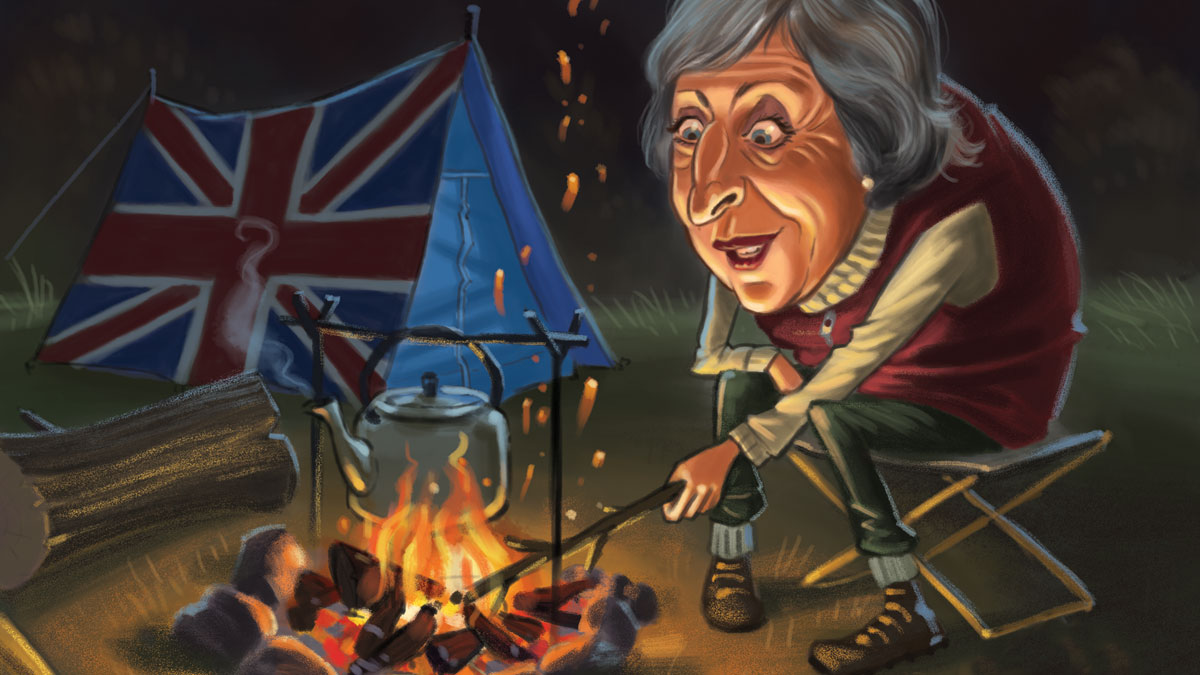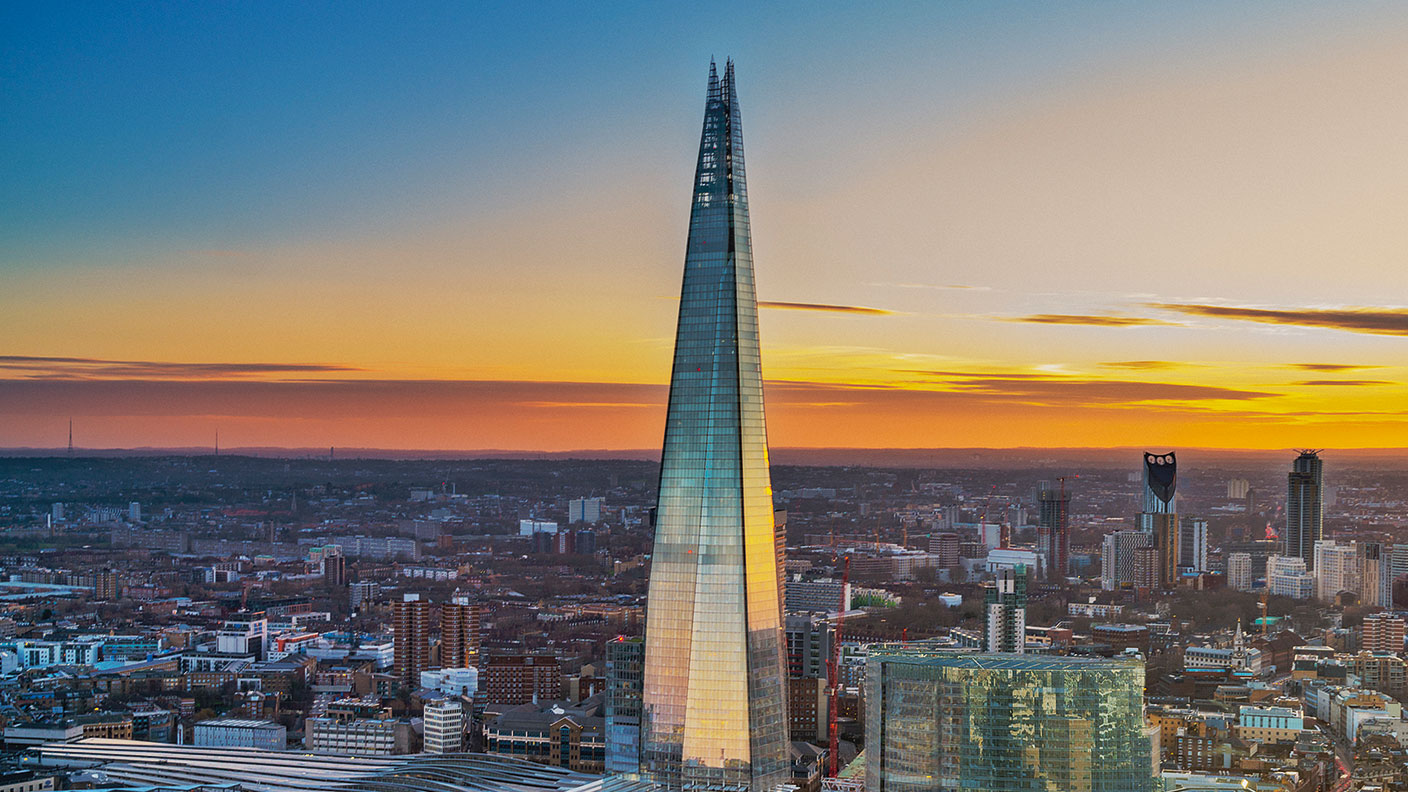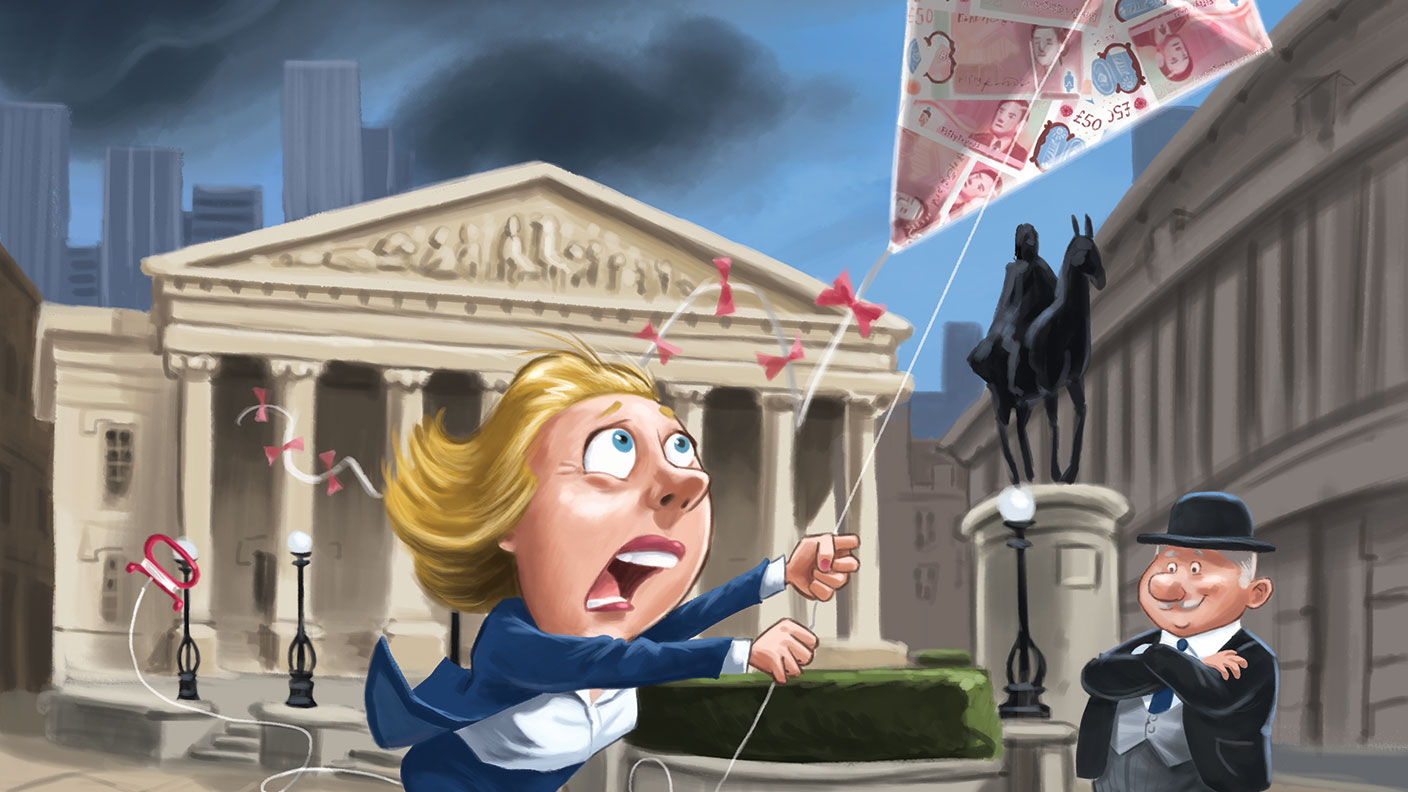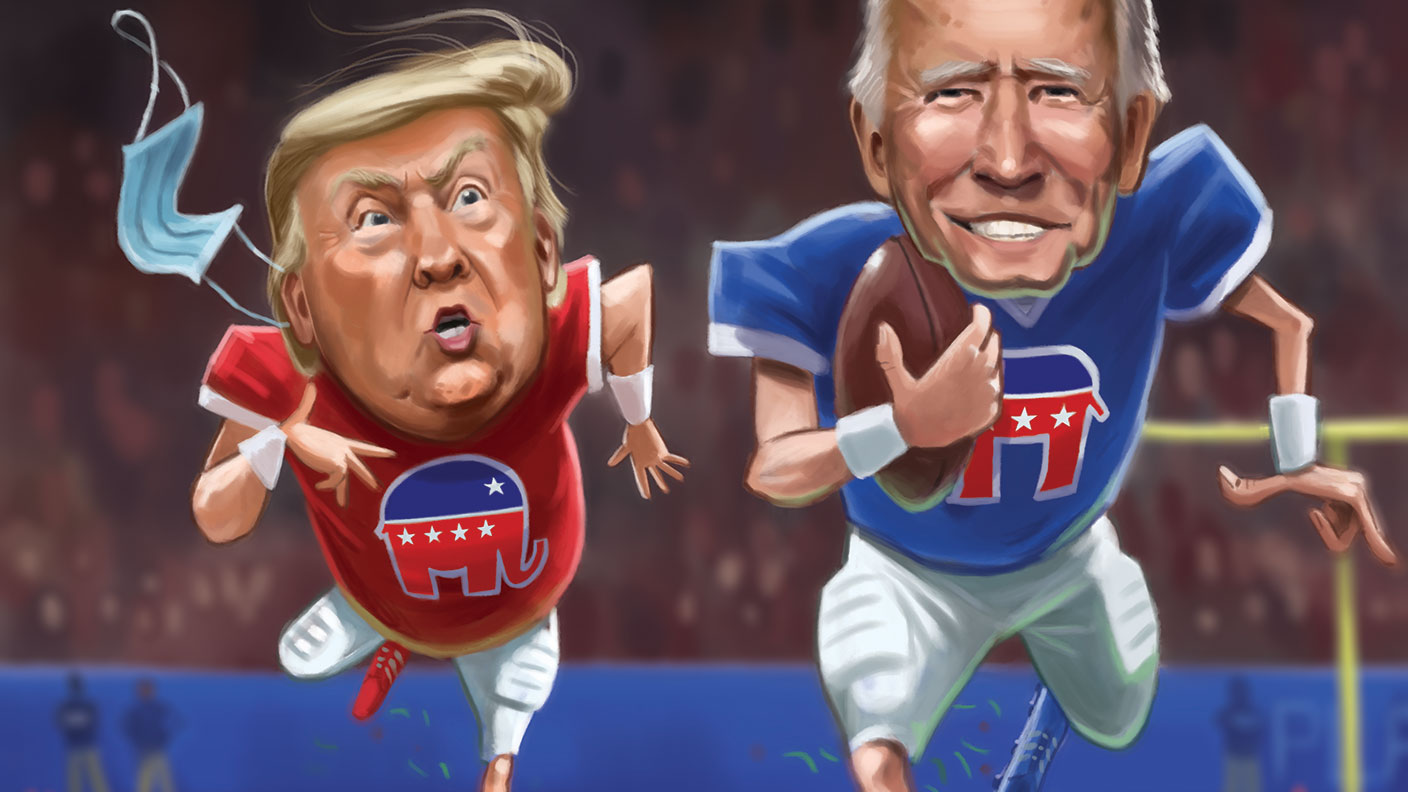Where will Theresa May lead Britain?
Certainly out of the European Union, she has promised. But what else has our new prime minster got up her sleeve? John Stepek reports.

Get the latest financial news, insights and expert analysis from our award-winning MoneyWeek team, to help you understand what really matters when it comes to your finances.
You are now subscribed
Your newsletter sign-up was successful
Want to add more newsletters?

Twice daily
MoneyWeek
Get the latest financial news, insights and expert analysis from our award-winning MoneyWeek team, to help you understand what really matters when it comes to your finances.

Four times a week
Look After My Bills
Sign up to our free money-saving newsletter, filled with the latest news and expert advice to help you find the best tips and deals for managing your bills. Start saving today!

Certainly out of the European Union, Theresa Mayhas promised. But what else has our new prime minster got up her sleeve? John Stepek reports.
We're now almost a month on from Britain's vote to leave the European Union. A lot has happened since. We have a new prime minister, Theresa May, and a new chancellor, Philip Hammond. Britain's main opposition party is imploding. But here's what hasn't happened: the world has not ended.
As Capital Economics puts it, this week, the International Monetary Fund (IMF) "all but admitted that it had been bluffing" about its pre-referendum warning that Brexit would cause "severe regional and global damage".
MoneyWeek
Subscribe to MoneyWeek today and get your first six magazine issues absolutely FREE

Sign up to Money Morning
Don't miss the latest investment and personal finances news, market analysis, plus money-saving tips with our free twice-daily newsletter
Don't miss the latest investment and personal finances news, market analysis, plus money-saving tips with our free twice-daily newsletter
In reality, growth outside Europe will be "little affected". The IMF has downgraded its estimates for UK growth from above 2% to 1.3% next year but still a far cry from the "self-inflicted recession" pundits warned of.
The latest jobless data show that unemployment has fallen to an 11-year low of 4.9%, while wages are growing by 2.3% a year that was pre-referendum, but there's little obvious sign of a post-referendum slowdown, according to the Bank of England's monthly review of business activity.
London's luxury housing market still looks wobbly, but it was topping out already due to a surfeit of supply and changes to taxation if anything, the hit to sterling inflicted by Brexit could allow it to eke out one last gasp of interest from naive foreign investors.
Of course, IMF forecasts have never been particularly reliable, but it does rather prove the point that the bloodcurdling threats before the vote were very much for effect. So if not utter catastrophe, what does come next? And what will it mean for investors?
Theresa May's Cabinet

Philip Hammond, chancellor
Before his election as MP in 1997, Hammond had a varied career as a businessman, then consultant, advising firms in a range of sectors, including health care and energy. He also worked on several projects for the World Bank. After the 2010 election, he joined the cabinet as transport secretary. He rose to defence secretary in 2011, then foreign secretary in 2014. He ended up supporting Remain in the referendum, but was seen as generally eurosceptic, and only showed his cards after David Cameron's EU renegotiation.

David Davis, minister for Brexit
In 2005, David Davis was favourite to succeed Michael Howard as Conservative leader. However, while he was the MPs' narrow choice, the Conservative membership voted for Cameron instead. He resigned as shadow home secretary in 2008 and refused to serve in Cameron's cabinet. Strongly pro-Leave, Davis wants a quick exit, followed by an emphasis on trade deals with non-EU countries. However, he does want some sort of EU deal that will give manufacturers access to the single market.

Liam Fox,trade minister
Five years ago, the former defence secretary's political career looked like it could be over after a lobbyist scandal forced him to resign. However, he has now been brought back to negotiate trade deals with non-EU countries. As well as determining Britain's economic future, these deals will give the UK strong leverage in any EU negotiations. However, depending on their content, they may also complicate any deal to gain access to the single market. Always a eurosceptic, Fox campaigned for Leave in the referendum.
The end of austerity
The biggest change may be in the UK's economic direction. As Janan Ganesh notes in the Financial Times, the past two decades have seen UK economic policy governed mainly by just two men. George Osborne "set Conservative economics since 2005", while Gordon Brown "exercised the same grip for Labour between 1992 and 2007".
Now we're moving into a new phase "the appointment of Mr Hammond is an Event". Beyond having had a long and varied career in the Conservative party (see below), there's little clarity on what exactly he believes in we'll have to wait for the Autumn Statement in late November for more on that.
However, the broad brush strokes are already in place. May has made it very clear that she has no plans to achieve a budget surplus by 2020. In other words, fiscal policy government spending will be looser. Hammond has a reputation for being more concerned about the deficit, but he's clearly on board: "Of course we've got to reduce the deficit further, but looking at how and when and at what pace we do that, and how we measure our progress in doing that is something that we now need to consider in the light of the new circumstances that the economy is facing," he said this week.
This is part of a global recognition by governments that if they really want to get growth and inflation going, they're going to have to stop leaving central banks to do all of the heavy lifting, and start spending themselves (Japan is way ahead of us on this). And at this point, markets are quite happy to give governments room to do so. As Michael Pearce of Capital Economics notes, "debt ratios are no longer rising rapidly and most market measures of default risk are at or near their lowest levels since the financial crisis" and in most countries "public debt has peaked or is close to peaking".
Because of this, "many governments could scale back their fiscal plans and still hold public debt ratios steady". Of course, "interest rates may not remain this low for long, especially if greater fiscal stimulus pushes up demand and stokes price pressures. But that only boosts the incentive to opportunistically refinance debt while yields are historically low."
The new industrial policy
How might this fiscal loosening work? What might this extra money be spent on? May has backed the idea of a more coherent industrial policy. While this might give some readers nasty flashbacks to an era of picking disastrous national champions, we would expect it to be less interventionist than that. The creation of a Department for Business, Energy and Industry Strategy points to more joined-up thinking on how to create conditions for manufacturing to thrive, rather than re-nationalising the car industry, for example.
Notes the Financial Times: "Many point to the success of the formal partnerships developed in the aerospace and automotive sectors two of the UK's biggest export industries where government, business and unions agree priorities for state support and private-sector investment. Airbus increased investment into the UK after the creation of the Aerospace Technology Institute, in which government and industry have pledged to share equally £2.4bn over seven years to fund cutting-edge aerospace research", for example.
Placing energy policy in the same department so that the practical needs of businesses are considered when making decisions might also deal with the threat of a pending energy crunch that Britain has never quite got to grips with. More infrastructure spending, perhaps backed by government guarantees, is another key area.
We could see a commitment to a national house-building programme (popular with struggling first-time buyers, if not necessarily particularly effective in tackling affordability problems). We might even see an effort finally to push through airport expansion in the UK, to signal that we're "open for business".
Warming up the helicopters
And while May and Hammond work out exactly how the fiscal loosening will work, we can expect the Bank of England to keep things ticking over with a new batch of monetary stimulus as early as next month. This week, the Bank's influential chief economist, Andy Haldane, argued that Britain needs much looser monetary policy, even if only as a precaution.
Haldane agrees that we aren't facing disaster. The banking system is relatively healthy, so "this is not a re-run of the financial crisis of 2008/2009". However, he does expect the economy to slow. And while inflation is likely to rise due to the fall in the pound indeed, "inflation could overshoot [the 2%] target" "there is no real policy dilemma here".
Much like the Federal Reserve, Haldane believes the risk with monetary policy is asymmetric if the economy overheats, then raising interest rates should cool it back down if needs be. But the Bank is not as confident that if the economy slows again, cutting rates or printing more money will work. "I would rather run the risk of taking a sledgehammer to crack a nut the precise size and extent of the necessary stimulatory measures can be determined as part of the August inflation report round."
As Merryn notes in her editor's letter this week, Haldane also made it clear that the benefits of QE have largely gone to those who are already asset-rich, either through property or pensions. This chimes with May's desire to make Britain "work for everyone" and to pitch the Tories as the party for those who feel they've been left out.
It's a warning sign to the better off pensioners may find the "triple lock" comes under threat, and you shouldn't expect any let up in the attack on buy-to-let landlords but it also opens the way for Britain to adopt a version of "helicopter money" policies where the Bank keeps borrowing costs low, allowing the government to spend freely.
Looser monetary policy plus more government spending? It's hard to paint a gloomy picture for equity markets while that's the case at least until inflation seriously takes off and starts to threaten the bond market. We look at which stocks might be best placed to benefit at the bottom.
What is one-nation politics?
Theresa May used her first speech as prime minister on 13 July to define herself as a one-nation Tory. It's an overused term, says The Economist. But what does it actually mean? It derives from Benjamin Disraeli, the 19th-century writer and Tory politician.
Britain was then divided into "two nations", says one of Disraeli's characters in his 1845 novel Sybil, "between whom there is no intercourse and no sympathy; who are as ignorant of each other's habits, thoughts and feelings, as if they were dwellers in different zones, or inhabitants of different planets". These two nations were "the rich and the poor".
That the two are still severed was made clear by the EU referendum, says Richard Johnson on the Oxford University Politics blog. In elite circles, no one could understand how anyone could vote Leave. In working men's clubs, no one knew anyone who planned to vote Remain. The shock result led the liberal elite and the left to condemn their supposed audience as ignorant and bigoted. But working-class political traditions have long been suspicious of free trade and liberal ideals. The slogan "take back control" was bound to appeal.
Disraeli thought the aristocracy should take back control using its waning grip on political power to help the working class in defiance of the rising power of the mill owners, bringing the nation together again.
May's project is analogous. In a nation divided over Brexit and immigration and by rising wealth disparity, May seeks to help working-class families by restricting the power of "big business" and the "privileged few". "Ed Miliband never got to Number Ten, but his words did," says Chris Dillow on the Left Foot Forward blog. Yet May will find that identifying "burning injustices", as she put it, is easier than ending them.
When will we see Article 50?
It's still uncertain when the government willtrigger Article 50, which formally starts thetwo-year process of Britain leaving the EU. Thegovernment has already said that it won't do sobefore the end of this year. One issue is whetherthe government needs parliamentary approval.If so, its small majority of 12, combined with thefact that most MPs backed Remain, means thereis an outside chance that a well-organised revoltcould block the process, or at least delay it.
Indeed, no fewer than seven legal actions havebeen launched, seeking to get official confirmationthat the Commons would have to approve anymove. The issue is likely to be decided by theSupreme Court, which could begin discussionsas early as November. But ultimately, says the FT,"it would be foolish to assume that these legalarguments will decide the future course of Brexit.Ultimately, politics will determine the outcome."
What to buy now
Dollar-earning stocks such as GlaxoSmithKline (LSE: GSK) have done well out of the slide in the value of the pound, and that currency effect might already be priced in. However, overseas predators might still be keen to take advantage the ARM/SoftBank deal is one obvious example that "Brand Britain" has not become toxic overnight. There will be more such mergers, particularly with investment banks using the drop in sterling as a sales tool.
Stephen Diggle of Vulpes Investment Management tells Bloomberg that he sees this "as a buying opportunity in sterling assets, especially for businesses which benefit from sterling being near a multi-decade low against the US dollar". Nick Goodway in London's Evening Standard notes that several UK companies' "attractions today may well be greater than they were six months or a year ago... But for a real Brexit-fuelled takeover punt", how about ITV (LSE: ITV)? "It is less and less driven by UK advertising and more and more by content, most of which is sold in dollars."
As for assets that have been hit hard by Brexit and could be recovery plays the commercial property sector's woes areyet to wash out, but real-estate investment trusts are looking interesting. Commercial property giant British Land (LSE: BLND) has managed to sell Debenham's store on Oxford Street for £400m since the Brexit vote, for example. In recent results, it raised its dividend by 3% compared with this time last year.
As my colleague Sarah Moore has pointed out, the challenger banks could be worth a look too. They've been hit harder than seems realistic, unless you believe the gloomiest prognostications for the post-Brexit economy. It's also worth looking at a FTSE 250 tracker to take advantage of a rebound in sentiment towards domestically oriented stocks we've mentioned the iShares FTSE 250 exchange-trade fund (LSE: MIDD) here before.
One overpriced asset class to avoid is bonds. Higher spending won't be good news for government bonds in the long run. As Graham Neilson of Cairn Capital notes, normally, "money loose plus fiscal loose' is the recipe for higher yields". That might take time to materialise but we'd rather not take the risk.
Get the latest financial news, insights and expert analysis from our award-winning MoneyWeek team, to help you understand what really matters when it comes to your finances.

-
 ISA quiz: How much do you know about the tax wrapper?
ISA quiz: How much do you know about the tax wrapper?Quiz One of the most efficient ways to keep your savings or investments free from tax is by putting them in an Individual Savings Account (ISA). How much do you know about ISAs?
-
 The ‘mirror will’ flaw which could mean your savings end up with strangers – how to protect your legacy
The ‘mirror will’ flaw which could mean your savings end up with strangers – how to protect your legacyWriting a will lets you pass your wealth onto your loved ones. But couples with a so-called ‘mirror will’ could unintentionally leave their family exposed to being cut out.
-
 Governments will sink in a world drowning in debt
Governments will sink in a world drowning in debtCover Story Rising interest rates and soaring inflation will leave many governments with unsustainable debts. Get set for a wave of sovereign defaults, says Jonathan Compton.
-
 Why Australia’s luck is set to run out
Why Australia’s luck is set to run outCover Story A low-quality election campaign in Australia has produced a government with no clear strategy. That’s bad news in an increasingly difficult geopolitical environment, says Philip Pilkington
-
 Why new technology is the future of the construction industry
Why new technology is the future of the construction industryCover Story The construction industry faces many challenges. New technologies from augmented reality and digitisation to exoskeletons and robotics can help solve them. Matthew Partridge reports.
-
 UBI which was once unthinkable is being rolled out around the world. What's going on?
UBI which was once unthinkable is being rolled out around the world. What's going on?Cover Story Universal basic income, the idea that everyone should be paid a liveable income by the state, no strings attached, was once for the birds. Now it seems it’s on the brink of being rolled out, says Stuart Watkins.
-
 Inflation is here to stay: it’s time to protect your portfolio
Inflation is here to stay: it’s time to protect your portfolioCover Story Unlike in 2008, widespread money printing and government spending are pushing up prices. Central banks can’t raise interest rates because the world can’t afford it, says John Stepek. Here’s what happens next
-
 Will Biden’s stimulus package fuel global inflation – and how can you protect your wealth?
Will Biden’s stimulus package fuel global inflation – and how can you protect your wealth?Cover Story Joe Biden’s latest stimulus package threatens to fuel inflation around the globe. What should investors do?
-
 What the race for the White House means for your money
What the race for the White House means for your moneyCover Story American voters are about to decide whether Donald Trump or Joe Biden will take the oath of office on 20 January. Matthew Partridge explains how various election scenarios could affect your portfolio.
-
 What’s worse: monopoly power or government intervention?
What’s worse: monopoly power or government intervention?Cover Story Politicians of all stripes increasingly agree with Karl Marx on one point – that monopolies are an inevitable consequence of free-market capitalism, and must be broken up. Are they right? Stuart Watkins isn’t so sure.